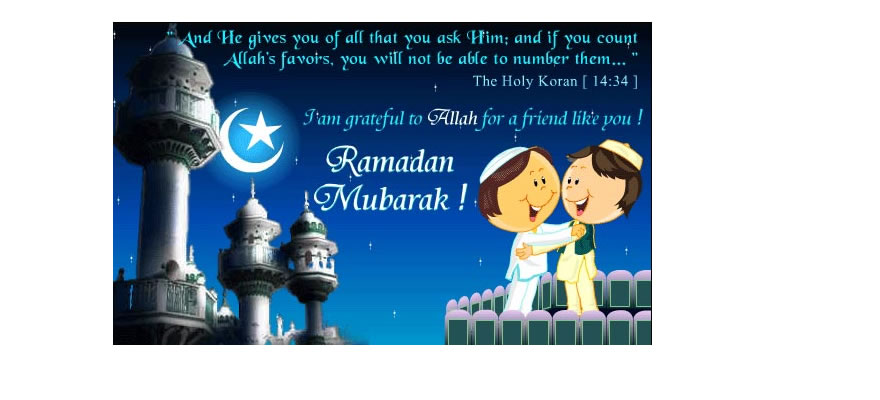What is Ramadan?
As Muslims around the world celebrate Eid el-Fitr, Segun Kuye, who works at the ZODML Community Library, writes about the significance of the month of fasting. Ramadan is the ninth month of Islamic calendar; it comes after Shaban and precedes Shawwal. It is the holiest month of the Muslim calendar. Ramadan is one of the five pillars of Islam, which also include Iman (profession of faith), salat (five obligatory daily prayers), zakat (giving of alms), and hajj (pilgrimage). The month of Ramadan lasts for 29 or 30 days subject to thesighting of the crescent moon at the beginning and end of the month. The word Ramadan comes from the Arabic root rami’a or ar-ramaa which means scorching heat or dryness.
In surat baqurrah of the Qur’an it states that:
"O ye who believe! Fasting is prescribed for you as it was prescribed for those before you so ye may learn self restrain... ’Ramadan is the month in which was sent down the Qur’an as a guide to mankind, also a clear sign for guidance and judgment between right and wrong, so everyone of you who is present (at home) during this month should spend it in fasting but if anyone is ill or on journey, the prescribed period should be made up later. Allah intends every facility for you, He does not want to put you to difficulties. He wants you to complete the prescribed period and to glorify Him in that He has guided you per chance ye shall be grateful." (Qur’an 2 verse 183, 185)
Muslims across the globe fast, refraining from eating, drinking, smoking, and having sexual intercourse from dawn to sunset with the clear intention of seeking the pleasure of Allah. Fasting in this month is a great act of worship. According to the Prophet Mohammad (peace be upon him), Allah, the most Exalted and Majestic, said:
"Every act of the son of Adam is for him except fasting. Fasting is exclusively meant for Me, and I (Allah) alone will reward it."
l’tikaf is another component of Ramadan and refers to avoiding from worldly activities and staying in the mosque with the intention of becoming closer to Allah. It is observed during the last ten nights of Ramadan. One of the last ten days of Ramadan is the Night of Majesty (Lailat ul-qadr) or night of power. According to surat Al-Qadr of the Qur'an , Allah says;
"We have indeed revealed this message in the night of power. And what will explain to thee what the night of power is? This night of power is better than a thousand months of worship."
Therefore, every Muslim faithful looks forward to this night which they hold in the highest esteem by being awake between 1am and 4am to observe salat and a’dua (supplication to Allah). Zakat ul-fitr is the charity we give at the end of Ramadan. It is compulsory for all Muslims irrespective of the age, sex, or race, and comes with a specific measure of foodstuff (or money in lieu). Eid el-Fitr, also called the feast of breaking the fast, is an important religious holiday celebrated by Muslims worldwide that marks the end of Ramadan. Eid el-Fitr has specific salat which are generally offered in an open field or large hall. On this day, Muslims are not expected to fast, and instead wine and dine with their loved ones. Ramadan also has a social aspect: it is meant to help our understanding of the pain and suffering of the poor and the deprived, and encourage us to work towards ending poverty across the world. The importance of sharing during Ramadan establishes love and affection among members of the community. Congregational prayer, reading or listening to the Qur’an together, and meeting each other in the mosque also enhances social interaction, and shows that Ramadan is the most unifying observation of Islam. If Muslims and non Muslims embrace the teachings of Ramadan, this world will be a better place. Share how you spent the month of Ramadan with us in the comments. Image source: OMG





